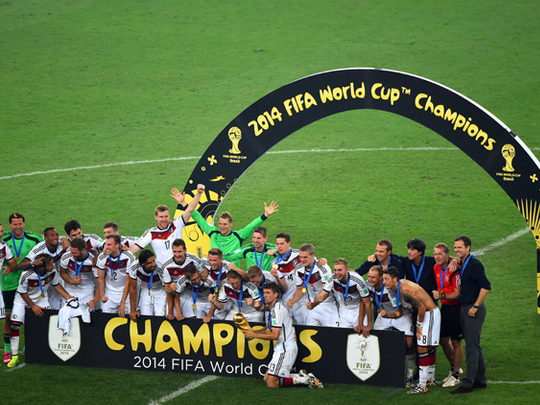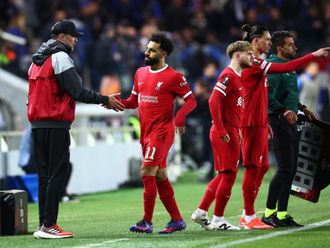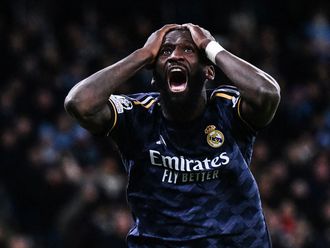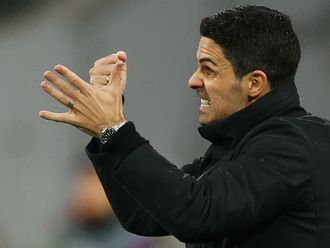
Rio de Janeiro: Germany coach Joachim Loew believes Die Mannschaft’s historic World Cup win at Brazil 2014 will be the stepping stone to achieving further future honours.
Mario Goetze’s stunning 113th-minute chest and volley sealed Sunday’s 1-0 extra-time win over Argentina in the final at Rio de Janeiro’s Maracana Stadium.
Loew said there is more to come, with Germany set to have their status on top of the world confirmed by taking over No. 1 spot when the Fifa rankings are announced on Monday.
The Germans will be the team to beat when qualification for Euro 2016 in France begins in September after Loew again managed to coax eye-catching performances out of a young side at a World Cup.
Thomas Mueller, 24, finishes as their top scorer with five goals in Brazil, while Goetze only turned 22 last month.
Attacking midfielder Toni Kroos, 24, and centre-back Mats Hummels, 25, have had outstanding World Cup campaigns.
It leaves world-class goalkeeper Manuel Neuer, 28, midfielder Bastian Schweinsteiger, who turns 30 in a fortnight, captain Philipp Lahm, 30, and 36-year-old striker Miroslav Klose as the squad’s senior statesmen.
“I think this title will give us a push for the future, we don’t have many players in the squad above 30, but look at Goetze, Mueller, [Mesut] Ozil and [Marco] Reus, who wasn’t there, so there are a lot of players who can still achieve a lot in their careers,” said Loew.
Germany showed their strength in depth at the Maracana as Andre Schuerrle’s cross was volleyed home by fellow substitute Goetze.
The Germans became the first European team to win a World Cup in the Americas at the sixth attempt without talented Dortmund midfielders Reus, 25, and Ilkay Gundogan, 23, who have ankle and back injuries respectively.
There is also a crop of exciting young midfield talent at Schalke as Julian Draxler briefly played in the group stages, while teenagers Max Meyer and Leon Goretzka failed to make the squad after making their debuts in a pre-World Cup friendly.
Having played eye-catching football at the last World Cup four years ago before losing in the semi-finals to eventual winners Spain, Loew says his team learnt their lessons from South Africa.
The German FA (DFB) are now reaping the rewards of an ambitious youth development programme started a decade ago in the wake of their group stages exit at Euro 2004.
Loew also said Germany have benefited from the rise of Bundesliga teams in the Champions League after Bayern Munich and Borussia Dortmund contested the 2013 final, giving his squad more valuable experience.
“Of course, the Bundesliga has a huge influence on the team and the training the young players get, we had an extremely young team in South Afirca in 2010,” said Loew.
“In 2000 and 2004, German football was down and out, we went out in the group phases, so we took decisive steps and invested more in the players’ education.
“It wasn’t enough just to rely on German virtues, we had to get better on the pitch.
“We created centres of excellence and I am grateful for the clubs who did that, this World Cup victory is a product of the excellent education and training in Germany.”












